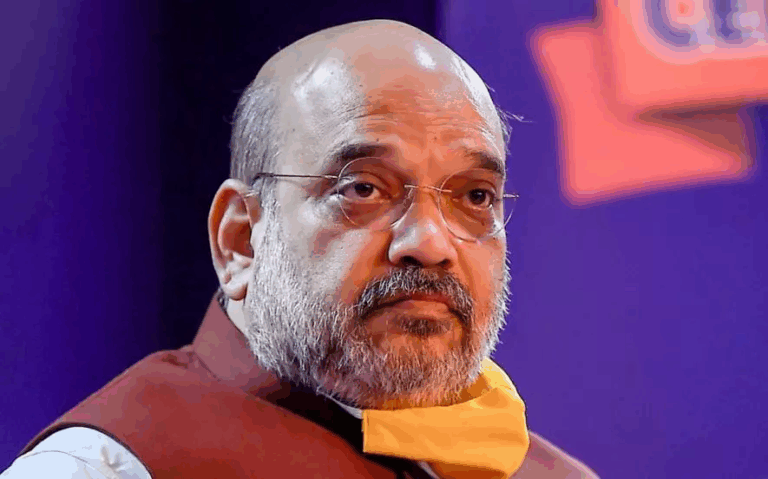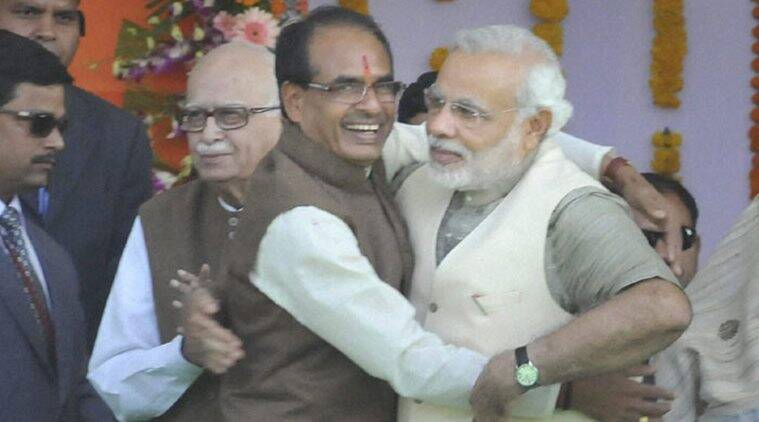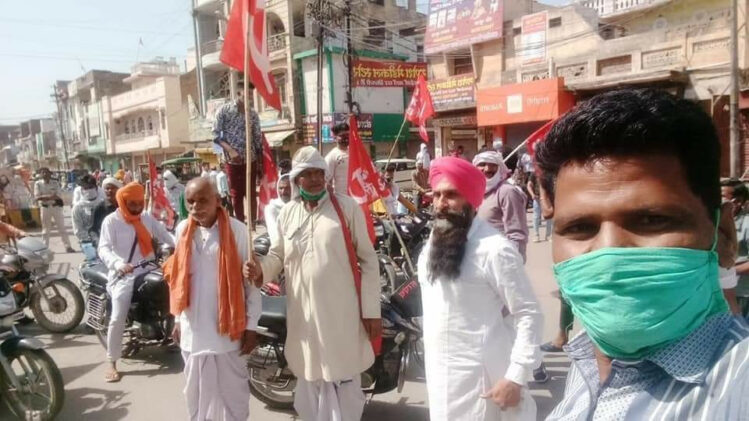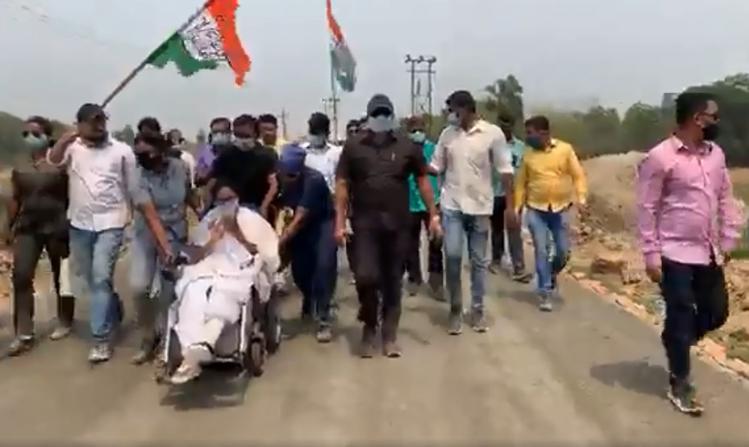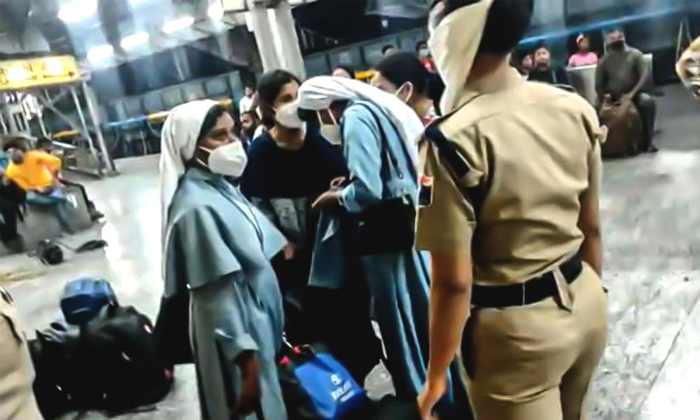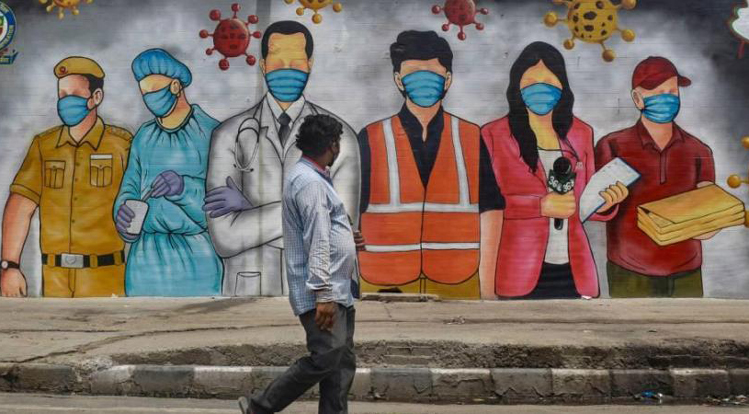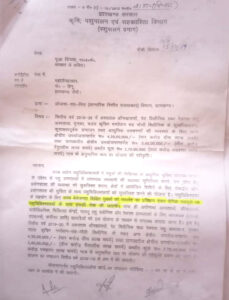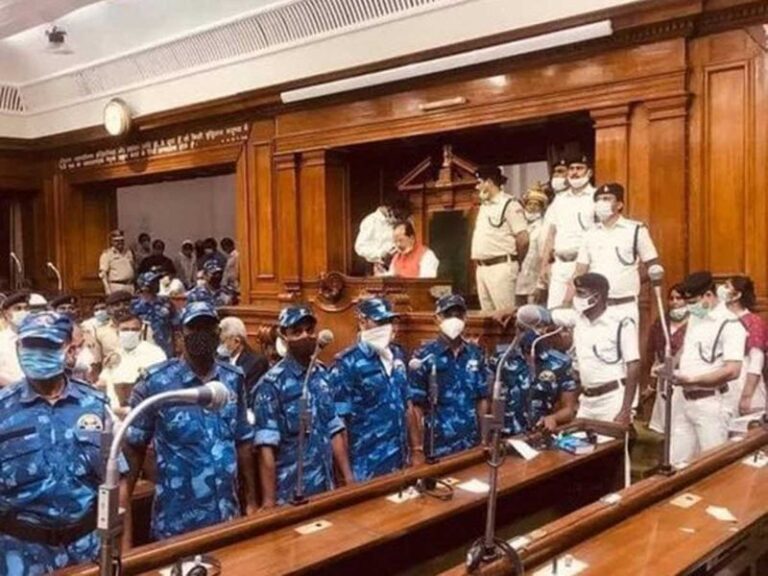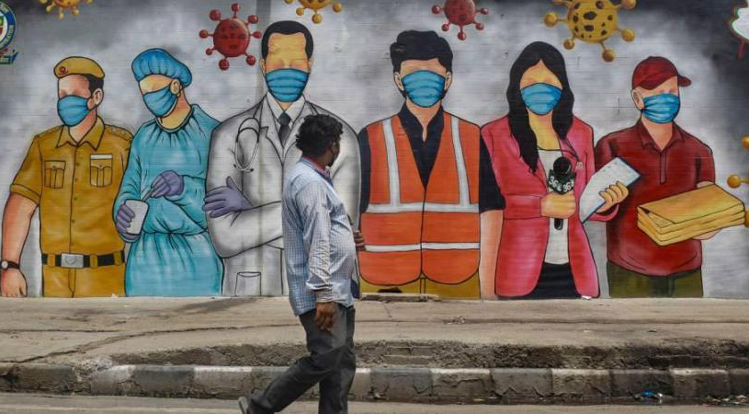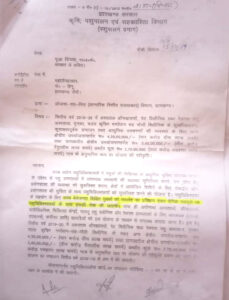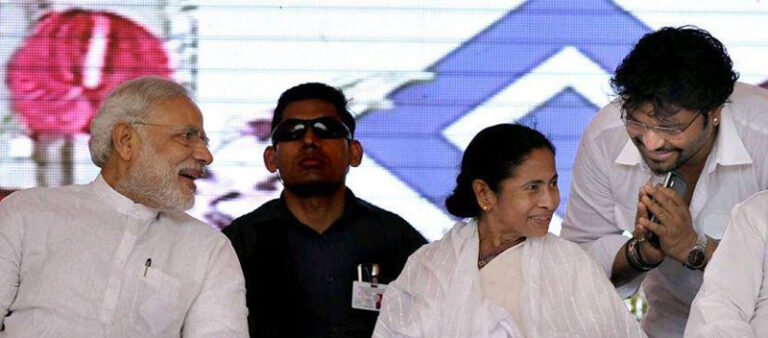गृहमंत्री अमित शाह की विधानसभा चुनाव परिणामों को लेकर की जाने वाली भविष्यवाणीयों को साझा करने वाले ज्योतिषियों की सफलता की दर को भाग्य-बताने-वाले–व्यापार में फल-फूलने का मौका नहीं मिलेगा। 2018 के बाद से कई विधानसभा चुनावों के नतीजों के बारे में शाह द्वारा की गई भविष्यवाणियां गलत साबित हुई हैं। फिर भी हर बार वे भारतीय जनता पार्टी के लिए भविष्यवाणी कर बैठते हैं, और मीडिया इसे सुर्खियां बना देता है। इससे भाजपा समर्थकों में उत्साह पैदा हो जाता है; पार्टी विरोधी दलों को चिंता घेरने लगती है। दोनों ही, भविष्यकर्ता के उस व्यापार मॉडल को भूल जाते हैं जिसके जरिए वे अपने ग्राहकों में आशावाद की सुई को इंजेक्ट करते हैं।
शाह के कुछ पूर्वानुमान इतने गलत साबित हो गए हैं कि वे एक ऐसे ज्योतिषी की भविष्यवाणी के समान हैं जो अनुमान लगाते हैं कि कोई व्यक्ति किसी बीमारी से बच जाएगा- लेकिन होता उसके उलट है और उसकी मौत हो जाती है। उदाहरण के तौर पर, पिछले साल दिल्ली विधानसभा चुनावों के प्रचार को सांप्रदायिक रंग देने के बाद, शाह ने कहा था कि भाजपा केंद्र शासित प्रदेश की 70 में से 45 सीटें जीतेगी। जबकि भाजपा को सिर्फ आठ सीटें मिलीं। 2019 के झारखंड चुनावों से पहले, शाह ने दावा किया था कि भाजपा को राज्य की 81 में से 65 सीटें मिलेगी। जबकि पार्टी की पारी 25 पर ही क्लीन बोल्ड हो गई थी। फिर उन्होंने 2018 के छत्तीसगढ़ विधानसभा चुनावों में भाजपा की जीत की भविष्यवाणी की थी- लेकिन पार्टी को वहां 90 में से केवल 15 सीटें ही मिली।
दिल्ली, झारखंड और छत्तीसगढ़ में, कम से कम शाह की भविष्यवाणी में कुछ राजनीतिक आधार निहित था, क्योंकि इन तीन राज्यों में पार्टी का आधार रहा है। हालांकि, कुछ भविष्यवाणियों में, शाह एक ज्योतिषी की तरह लगते है जो भोली जनता के लिए कोई कल्पना को बुनते नज़र आते है। मिजोरम को लें, जहां शाह ने 2018 में कहा था कि भाजपा “वहां सरकार बना सकती है।” पार्टी ने 40 में से सिर्फ एक सीट जीती थी, 27 सीटों पर जीत हासिल करने वाले मिजो नेशनल फ्रंट ने खुद की पार्टी को विभाजित और तोड़-फोड़ के माध्यम से सरकार बनाने की भाजपा की उम्मीद पर पाने फेर दिया था। शाह ने भविष्यवाणी की थी कि भाजपा 2018 के तेलंगाना विधानसभा चुनावों में अपने पिछले प्रदर्शन में सुधार करेगी- उनकी पार्टी 5 सीटों से गिरकर सिर्फ एक सीट पर आ गई थी।
ज्योतिषी इसलिए पनपते हैं क्योंकि वे भविष्यवाणियाँ करते समय काफी अस्पष्टता की भाषा अपनाते हैं। उदाहरण के लिए, किसी मध्यमवर्गीय व्यक्ति को नौकरी से बर्खास्त होने के बाद बताया जाएगा कि जल्द ही उनके जीवन में बदलाव आने की संभावना है। यह बदलाव अक्सर सबके जीवन में आता है, क्या नहीं आता? जो बात वे कभी नहीं बताएंगे कि क्या उस व्यक्ति के जीवाव में जो टर्नअराउंड आएगा क्या उसमें उस व्यक्ति को वेतन कम मिलेगा, मुक़ाबले वह जो पहले कमा रहा था।
इसके विपरीत, शाह एक खास संख्या के बारे में बयानबाजी करते है- और बहुत बुरी तरह गलत साबित हो जाते हैं। पिछले साल बिहार विधानसभा चुनाव से ठीक पहले, शाह ने कहा था कि राष्ट्रीय जनतांत्रिक गठबंधन, जो भाजपा का नेतृत्व कर रहा है, को दो-तिहाई बहुमत मिलेगा। इसका मतलब कि बिहार की 243 सीटों में से एनडीए को कम से कम 162 सीटें मिलना। एनडीए ने महागठबंधन के मुकाबले जीत हासिल करने में जो कामयाबी हासिल की, उसमें उसे केवल 122 सीट मिली जो केवल तीन सीटें अधिक सीटें थी। भविष्यवाणी में 37 सीटों का भारी अंतर से कोई कुशल विज्ञानी नहीं बन सकता है।
लेकिन क्योंकि एनडीए ने बिहार में सरकार बना ली, इसलिए भविष्यवाणी और अंतिम परिणाम के बीच की खाई को खत्म कर दिया गया, क्योंकि आमतौर पर ज्योतिषियों की आदत होती है कि वे सितारों को पढ़ने की अपनी क्षमता के प्रमाण के रूप में उसे बयान कर सके। बिहार जैसे नतीजे इस बात की गवाही देते हैं कि लोग यह बात अक्सर क्यों भूल जाते हैं कि शाह की भविष्यवाणियाँ आमतौर पर गलत होती हैं।
शाह ने हरियाणा, राजस्थान और मध्य प्रदेश के बारे में भी गलत भविष्यवाणियाँ की थी। उन्होंने दो-तिहाई बहुमत की भविष्यवाणी की थी- हरियाणा में भाजपा को इस संख्या को तय करने में खासी मशक्कत करनी पड़ी थी। उक्त भविष्यवाणी के मुताबिक पार्टी को 90 में से 60 सीटें जीतनी चाहिए थीं। लेकिन जीती 40 सीटें, लेकिन भाजपा ने बाजी तब मारी, जब भाजपा की अगुवाई वाली सरकार बनाने के लिए उसने जननायक जनता पार्टी की मदद ली। इसने शाह के चुनाव परिणामों की सही भविष्यवाणी करने की क्षमता के मिथक को तोड़ दिया था।
राजस्थान में, शाह ने दावा किया था कि भाजपा सत्ता में वापसी के लिए भाजपा के खिलाफ चल रही सत्ता-विरोधी लहर का सामना करेगी। जब उन्हे यह बताया गया कि 25 साल के इतिहास में सत्ताधारी दल के मामले में भविष्यवाणी हमेशा उल्टी पड़ती है, तो शाह ने कहा, “हमने अतीत में ऐसे कई रिकॉर्ड तोड़े हैं। मुझे यकीन है कि इस बार हम उस रिकॉर्ड को भी तोड़ देंगे। ”भाजपा को यहाँ केवल 73 सीटें मिली, जोकि बहुमत के निशान से 27 कम थी। 2018 में मध्य प्रदेश में भाजपा की सरकार बनाने की उनकी भविष्यवाणी पर भी विश्वास किया गया था- वहाँ उन्होने राज्य की 230 सीटों में से 109 सीटें जीती थीं।
लेकिन कांग्रेस के बहुत कम बहुमत से जीतने वाली कॉंग्रेस के विधायकों को इस्तीफा देने और उन विधायकों को अपने मिलाकर, भाजपा ने मध्य प्रदेश में महीनों बाद सरकार बनाई थी। यह वही विधि थी जिसे कर्नाटक में अपनाया गया था, जहां शाह ने भविष्यवाणी की थी कि उनकी पार्टी को 224 सीटों में से 130 पर जीत मिलेगी। यह कुल 104 सीटों पाकर सत्ता से बाहर हो गई थी। फिर, कांग्रेस-जनता दल (सेक्युलर) गठबंधन के विधायकों के समूह को तोड़ा गया, उनके इस्तीफे दिलवाकर भाजपा सत्ता में आई थी।
आप इसे भारत के लोकतंत्र का नया नियम कह सकते हैं: कि जब अमीत शाह का पूर्वानुमान या भविष्यवाणी विफल हो जाती है तो वे और बीजेपी गलत तरीके अपना कर उसे सही कर देते हैं। इससे दुर्भाग्य से, ज्योतिषी को लाभ नहीं होता है।
इस नियम का एकमात्र अपवाद महाराष्ट्र बना, जहां शाह ने एनडीए गठबंधन को दो-तिहाई बहुमत की भविष्यवाणी की थी, जिसमें शिवसेना तब उसकी एक सदस्य थी। गठबंधन को राज्य की 288 सीटों में से 192 सीटें मिलनी चाहिए थीं, लेकिन उसे 31 सीटों से कम मिली। लेकिन शिवसेना ने गठबंधन तोड़ दिया और राष्ट्रवादी कांग्रेस पार्टी और कांग्रेस के समर्थन से सरकार बना ली। महाराष्ट्र में राजनीतिक उथल-पुथल को देखते हुए, शाह के पास अभी भी राजनीतिक पंटर की अपनी प्रतिष्ठा को बचाने का मौका है।
2014 और 2019 के लोकसभा चुनावों में बीजेपी की जीत से प्रतिष्ठा बनने के बाद उन्होने अपने को पंटर के रूप में गढ़ा। यह माना जाने लगा कि वे मतदाताओं की मासिकता और जाति और समुदाय के गणित को जानते हैं। ग्यारह गलत भविष्यवाणियों के बाद अब उन्हे शांत हो जाना चाहिए था।
इसका भी एक कारण है कि उन्होने ऐसा क्यों नहीं किया। लगातार कई वर्षों से, भारतीय लोग मतदान के महीने में तय करते हैं कि वे किस पार्टी को वोट देंगे। इससे फ्लोटिंग वोटर्स की संख्या लगभग 20 प्रतिशत तक बढ़ जाती है। चूंकि मतदाता हारने वाली पार्टी के साथ जाना पसंद नहीं करते इसलिए शाह की भविष्यवाणियां भाजपा की जीतने की संभावना के बारे में उन्हें समझा पाती है कि भाजपा जीतने वाली पार्टी है – और इसलिए उनके वोट उसे मिल जाते हैं।
आमतौर पर सभी नेता चुनाव से पहले अपनी पार्टियों की जीत का दावा करते हैं। लेकिन कोई भी नियमित रूप से शाह जैसा दावा नहीं करता है, कोई भी मीडिया के सामने सटीक संख्या नहीं बताता है जैसा कि शाह बताते है। जब अखबारों ने हाल ही में शाह के इस दावे के बारे में रिपोर्ट दी कि भाजपा पश्चिम बंगाल के 294 में से 200 से अधिक सीटें जीतेगी, तो क्या उन्हें यह नहीं बताना चाहिए था कि 2018 के बाद से शाह के पास 11 राज्य विधानसभा चुनावों को गलत पढ़ने का रिकॉर्ड है?
तमिलनाडु पर मीडिया की रिपोर्टिंग की जांच से आपको इसका जवाब मिलेगा। उदाहरण के लिए, मीडिया ने शाह के दावों की सूचना दी, जिसे नवंबर 2020 में कहा गया था कि भाजपा “राज्य [तमिलनाडु] में सबसे बड़ी पार्टी के रूप में उभरेगी और राज्य में अपनी सरकार बनाएगी।” जैसा कि शाह की भविष्यवाणी के बारे में यह भी बताया गया कि लोगों के उत्साह को देखते हुए एनडीए तमिलनाडु की अगली सरकार बनाने के लिए बाध्य होगा।
लेकिन उसी मीडिया ने अखिल भारतीय अन्ना द्रविड़ मुनेत्र कड़गम और यहां तक कि भाजपा को हुए उस एहसास को नहीं दिखाया कि प्रधानमंत्री नरेंद्र मोदी के संदर्भ से उनके संभावित मतदाताओं उनसे दूर हो रहे हैं। इसे देखते हुए मोदी के नाम को कुछ दीवारों पर लगे भित्तिचित्रों से हटा दिया गया है। फिल्म स्टार खुशबू सुंदर जैसे भाजपा उम्मीदवारों ने दिवंगत एआईएडीएमके नेता जे॰ जयललिता की तस्वीर वाला पोस्टर लगाया हैं। मोदी उन सभी पोस्टरों से अब गायब हैं।
शाह की भविष्यवाणियां रणनीतिक हैं। लेकिन उनसे यह भी पता चलता है कि वे सोचते हैं कि मतदाता भोले है, वे जल्दी सब कुछ भूल जाते हैं, जिन्हे आसानी से बहकाया जा सकता हैं, और वे ज्योतिष में विश्वास करने लगते है, वे भाग्य-कहने वाले मसलों में कमजोर पड़ जाते हैं। 11 राज्य विधानसभा चुनाव में गलत होने के रिकॉर्ड के बाद भी शाह की भविष्यवाणियां लगता है हमारे मतदाताओं का मजाक उड़ाना हैं।
ये लेख न्यूज़क्लिक में पहले पब्लिश हुई है


